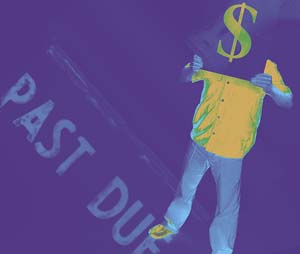As the number of foreclosures on homes purchased with a subprime mortgage continues to grow, the chatter from Washington and big business is focused on a way to slow, or even reverse, the trend.
But trying to bail out the industry isn’t necessarily the way to go, says Charles Cuny, senior lecturer in finance at the Olin Business School at Washington University in St. Louis.

“If you look at the individual homeowner, a bailout plan is essentially rewarding people who went out of their way to take on bad mortgages that they never could have afforded without subprime rates,” Cuny said. “Such a plan also rewards the companies that took on the risk of those loans. If you have any sort of beliefs about capitalism, then mistakes should lead to some sort of penalty.”
There are long-term impacts for rewarding the bad behavior as well, not the least of which is that bad decisions get rewarded, he said. The government is adding value to the discussion of freezing interest rates for borrowers and preventing foreclosures by facilitating the process.
The lenders are extremely eager to work something out, Cuny said. Given the cost of bankruptcies and foreclosures, lenders are likely to suffer as much as the homeowner. But according to Cuny, the lenders are the ones who should feel the pain.
“Many of these people should never have been given these loans,” Cuny said. “And by any reasonable standard, who should suffer for these sins? The people that should have known better should suffer, and that’s pretty clearly the lenders. On that level, if the loans go bust, they deserve it. Again, that’s the way capitalism is supposed to work. You don’t just get to reap the profits of the good years when bad decisions were made; you have to know how to ride out the bad years as well.”
The situation is even more complicated because the banks sliced up the loans and sold them off to different people. This now prevents homeowners from working with lenders to come up with ways to avoid foreclosure.
“In the past, if someone had financial difficulties, the bank would realize that foreclosing on a house is a costly process and it’s in the bank’s interest to come to a compromise with the borrower,” Cuny said. “Now those incentives are all messed up. Many loans were split ten different ways and sold to hundreds of different investors. To find a solution, you’d have to bring everyone to the table and that’s nearly impossible.”
Cuny said that there is reason to have sympathy for the subset of borrowers who probably didn’t understand the terms of the loans they received. They were effectively lied to and it appears that for those people who have already lost their homes, there is nothing in the bailout plan for them.
Editor’s note: Professor Cuny is available for live or taped broadcast-quality interviews using Washington University’s free VYVX or ISDN lines. Please contact Shula Neuman at (314) 935-5202 for assistance.